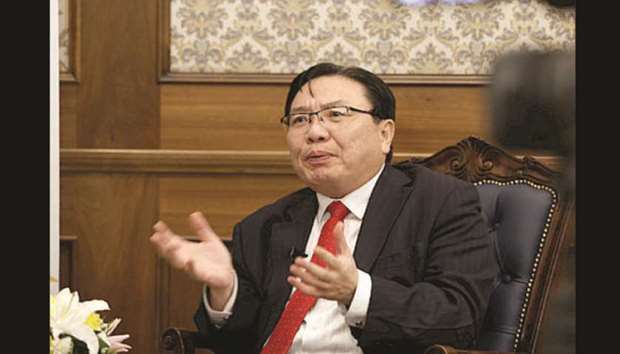Asian Development Bank (ADB) will provide $7.1bn in financing to help Pakistan achieve inclusive and sustainable growth over the next three years, its senior official said.
“ADB plans to significantly increase the country’s sovereign operations to $7.1bn over 3 years,” Wencai Zhang, vice president of the Manila-based lender said in a statement.
“Along with its continued focus on energy, infrastructure development, and institutional reforms, ADB is also re-engaging in education and health, and social safety net through income support programme.”
The financial package was planned under three-year Country Partnership Strategy for 2018-2020.
Zhang also affirmed ADB’s support for the government’s new development and reform agenda during his two-day visit to the country from October 4 to 5.
ADB vice president, during the visit, met with Finance Minister Asad Umar, Planning and Development Minister Khusro Bakhtiar, Education Minister Shafqat Mehmood, Adviser to Prime Minister on Institutional Reforms Ishrat Husain, as well as other government officials and development partners.
Zhang congratulated the new administration on assuming office and noted the government’s 100-day agenda that prioritises revitalising economic growth, transforming governance and revolutionising social services.
“ADB and Pakistan have a more than 50-year history of strong partnership,” Zhang said. “We are committed to deepening our cooperation with the new government and supporting its development agenda to bring prosperity to the people of Pakistan.”
Under the current country partnership strategy 2015-2019 and the country operations business plan 2018-2020, ADB is focused on ensuring high, sustained, and inclusive growth for Pakistan.
Zhang said the country’s economic growth momentum in recent years was driven by domestic demand and improvements in security, energy supply, and public infrastructure projects.
However, the widening current account and fiscal deficits are key challenges to the economy, he added.
ADB vice president stressed the importance of economic stability and offered ADB’s support in improving the country’s competitiveness, promote private sector, increase trade openness, and transform the institutions and economy.
Zhang said Pakistan is an important member of the Central Asia Regional Economic Cooperation (Carec) to which ADB is extending programmatic support to deepen regional economic integration.
Zhang said ADB is willing to support Pakistan in developing economic corridors within the framework of Carec and ADB’s Strategy 2030 ahead of the Carec Ministerial Conference in Ashgabat, Turkmenistan in November.
“ADB will help Pakistan upgrade its transport networks and trade facilitation with neighbouring countries and transform the physical connectivity gains into economic gains through the promotion and development of economic corridors and special economic zones,” he said.
ADB has committed more than $32bn in project and technical assistance to Pakistan as of September 30.

Zhang: Pakistan’s economic growth momentum in recent years was driven by domestic demand and improvements in security, energy supply, and infrastructure projects.
